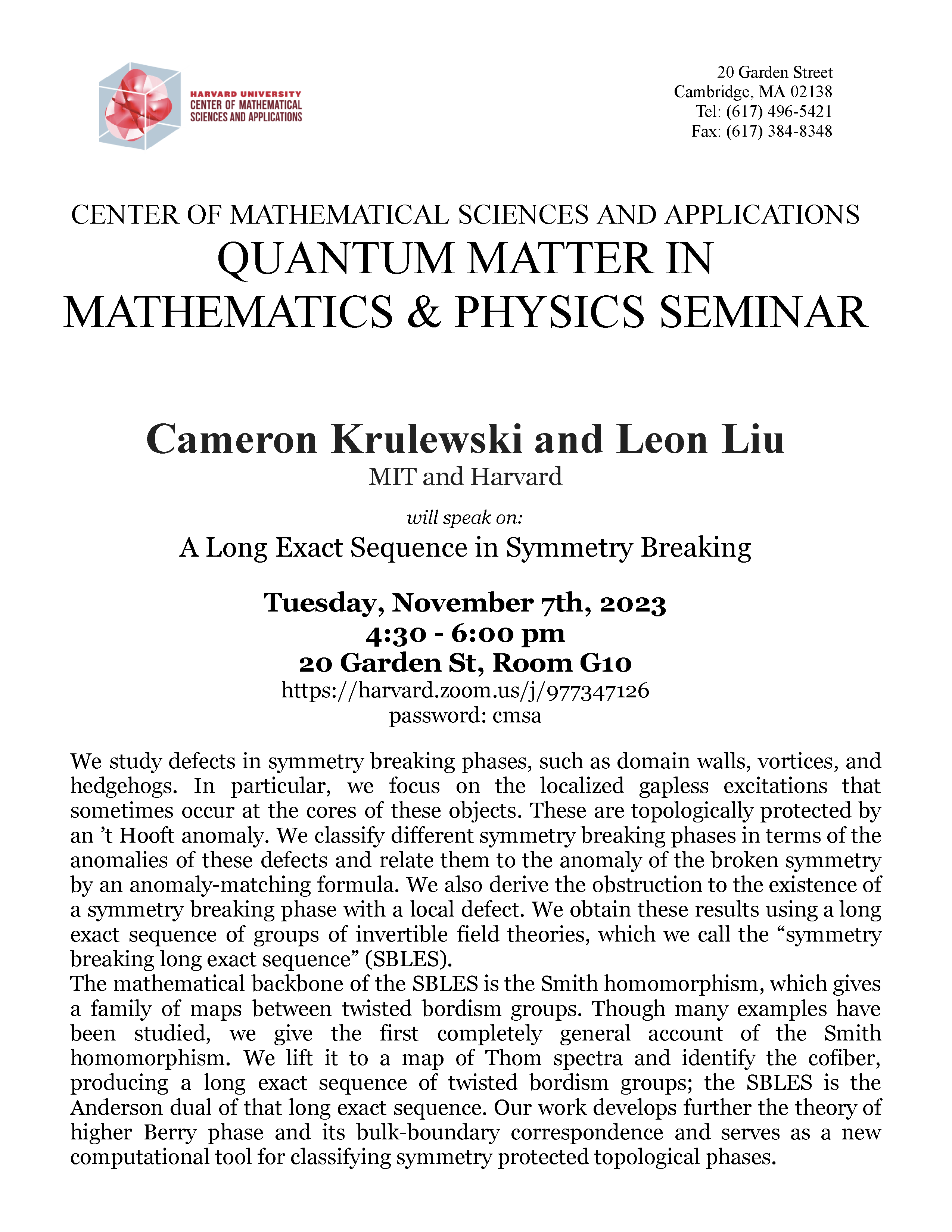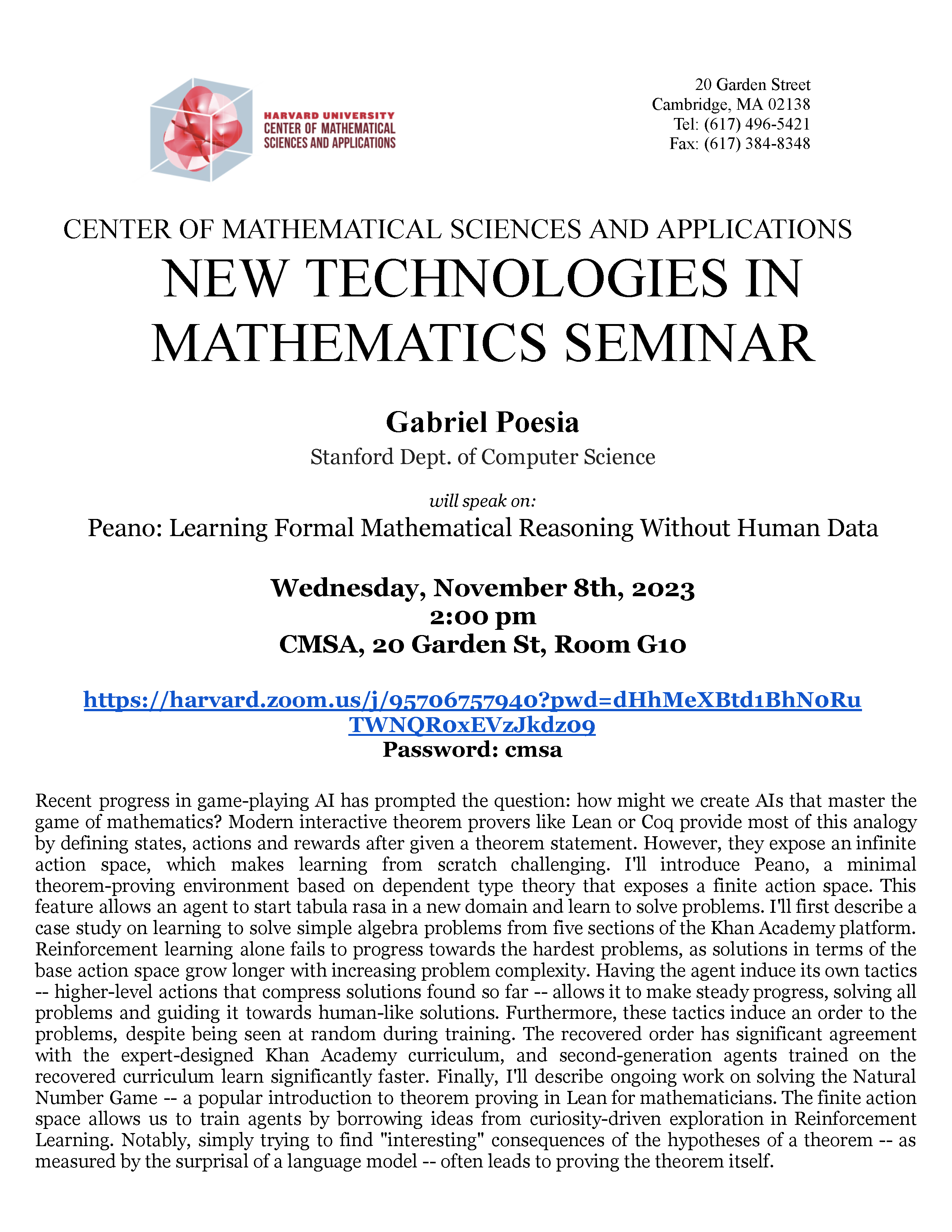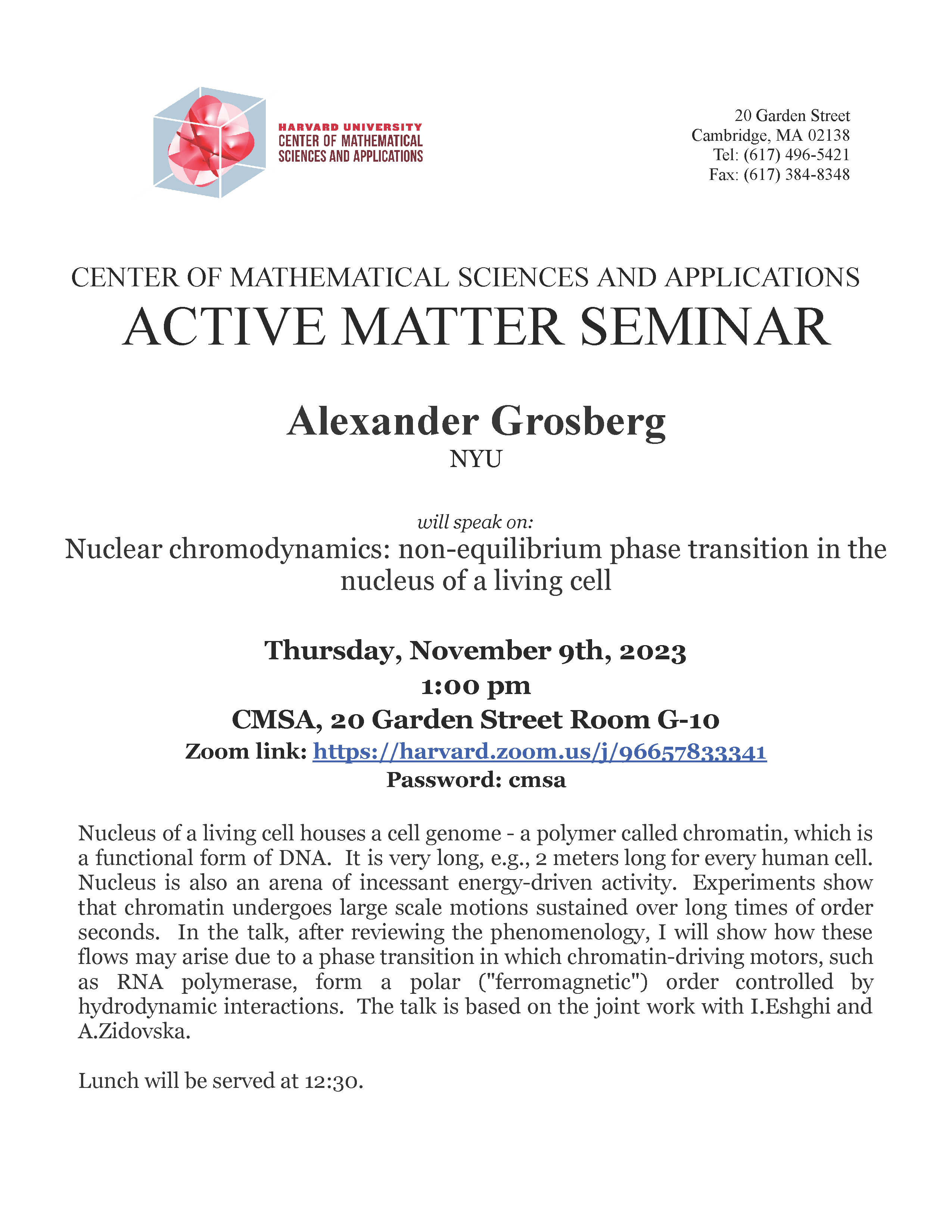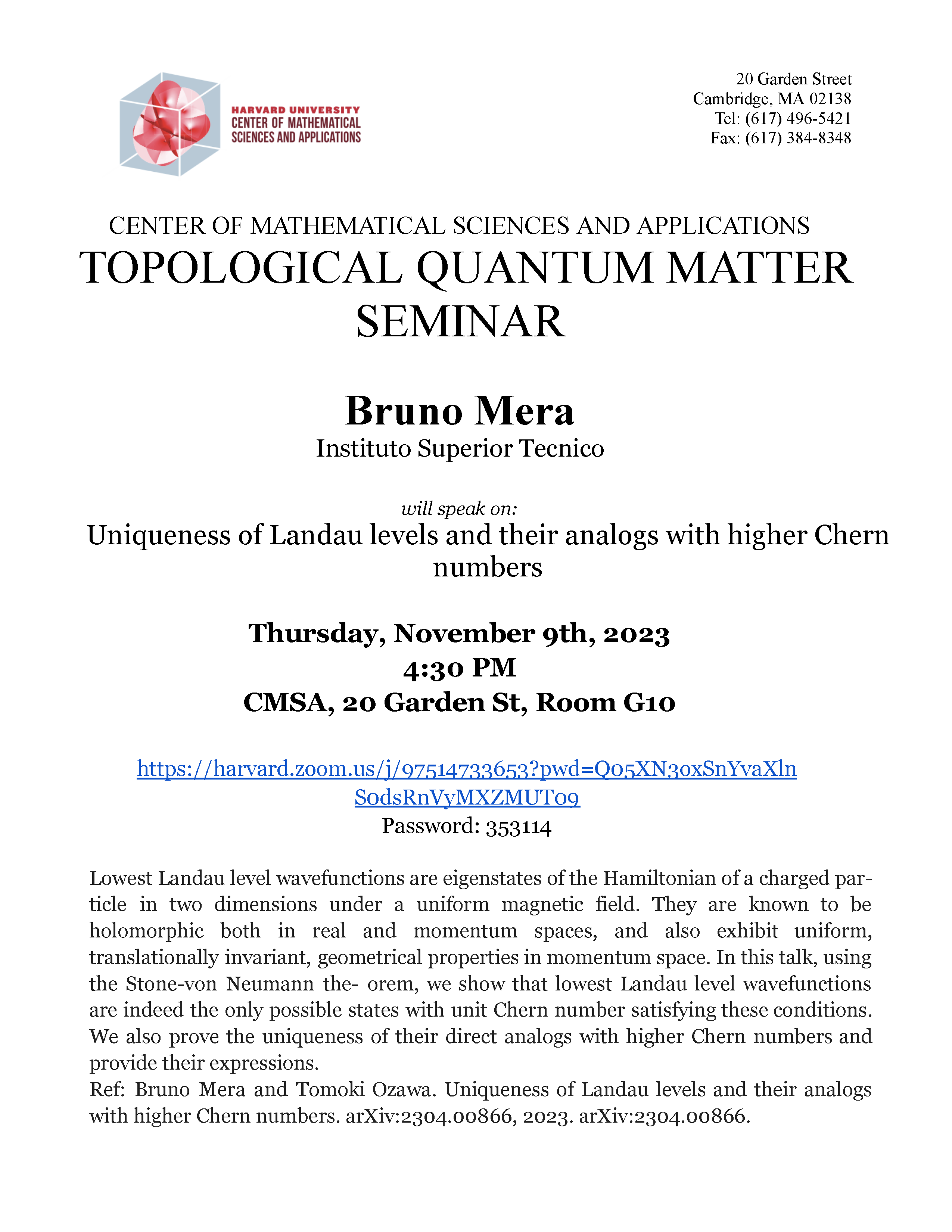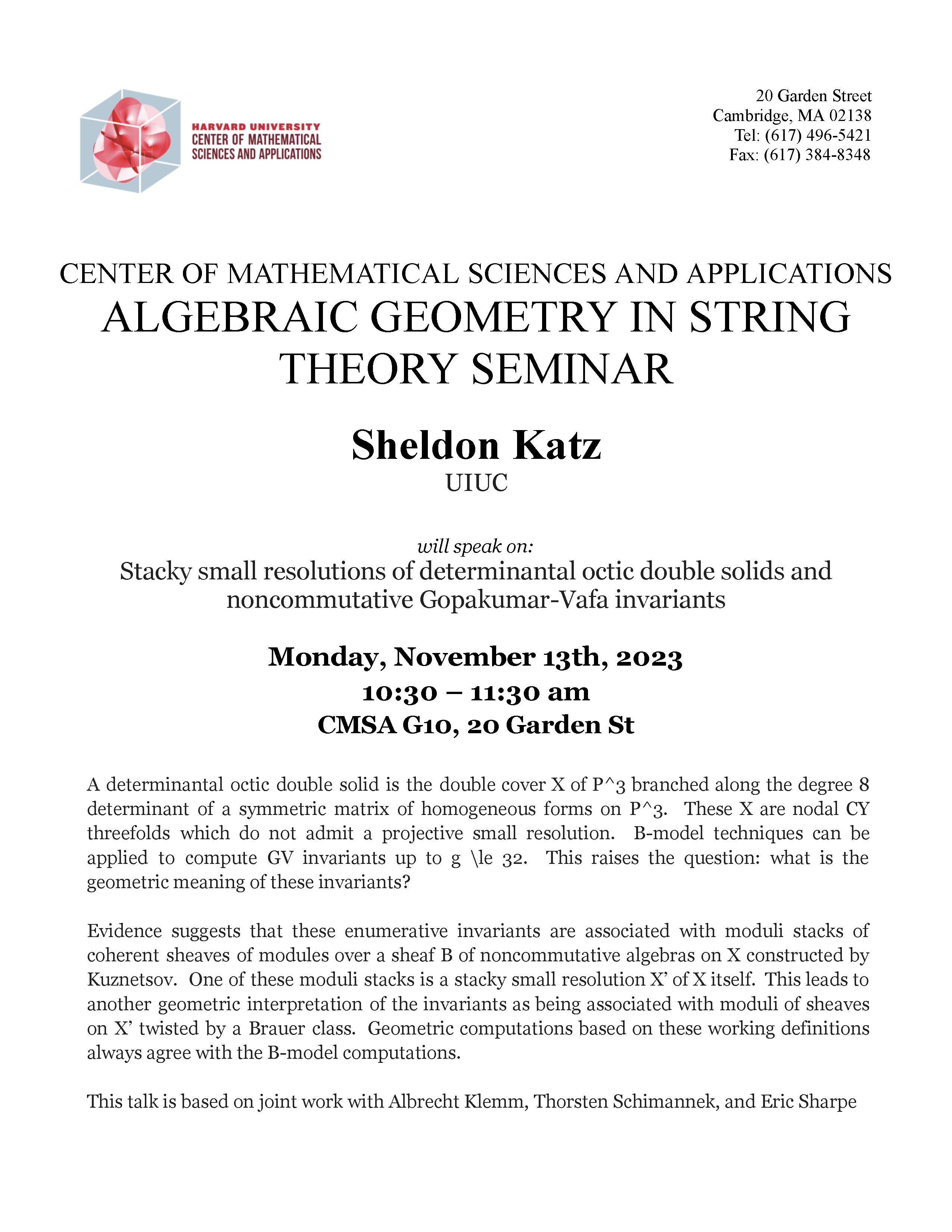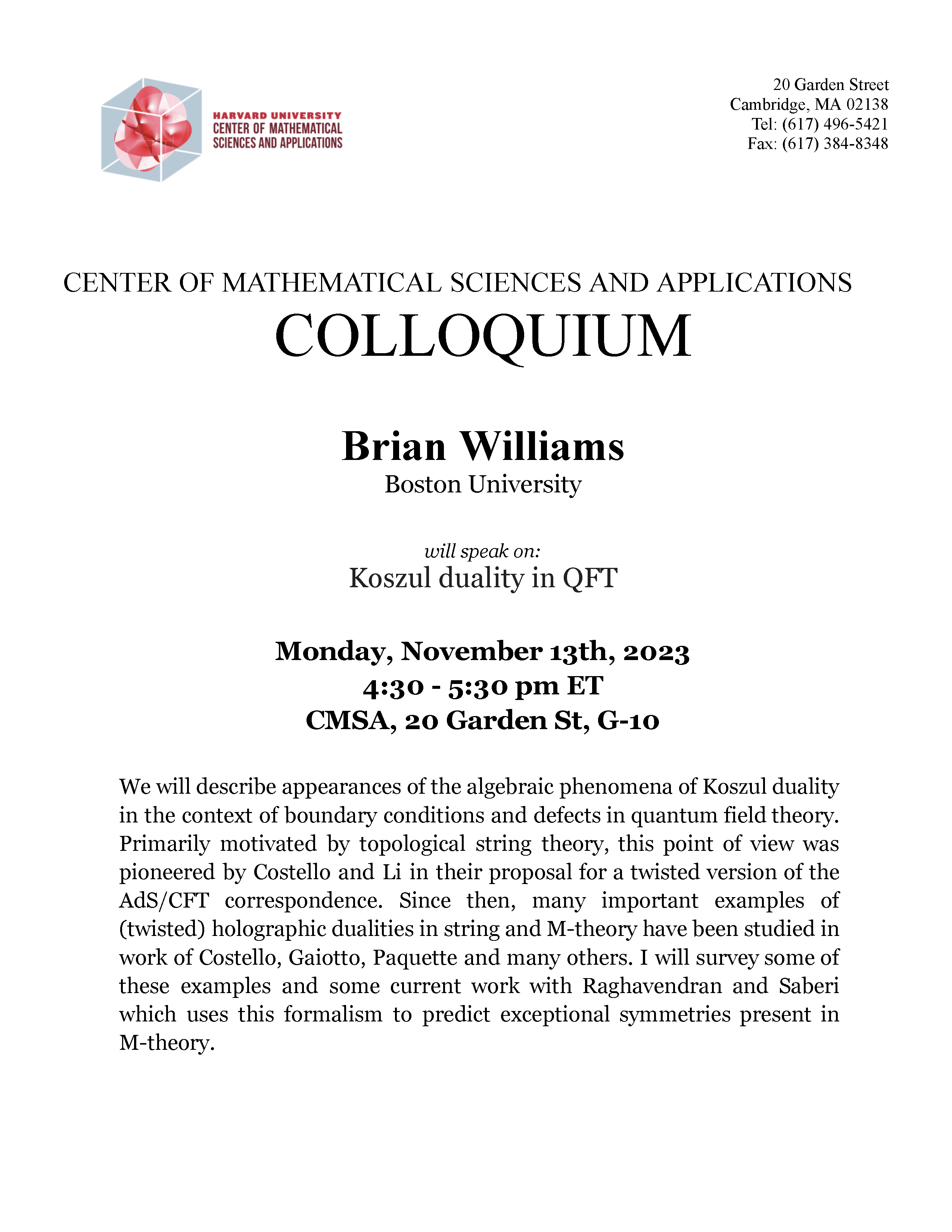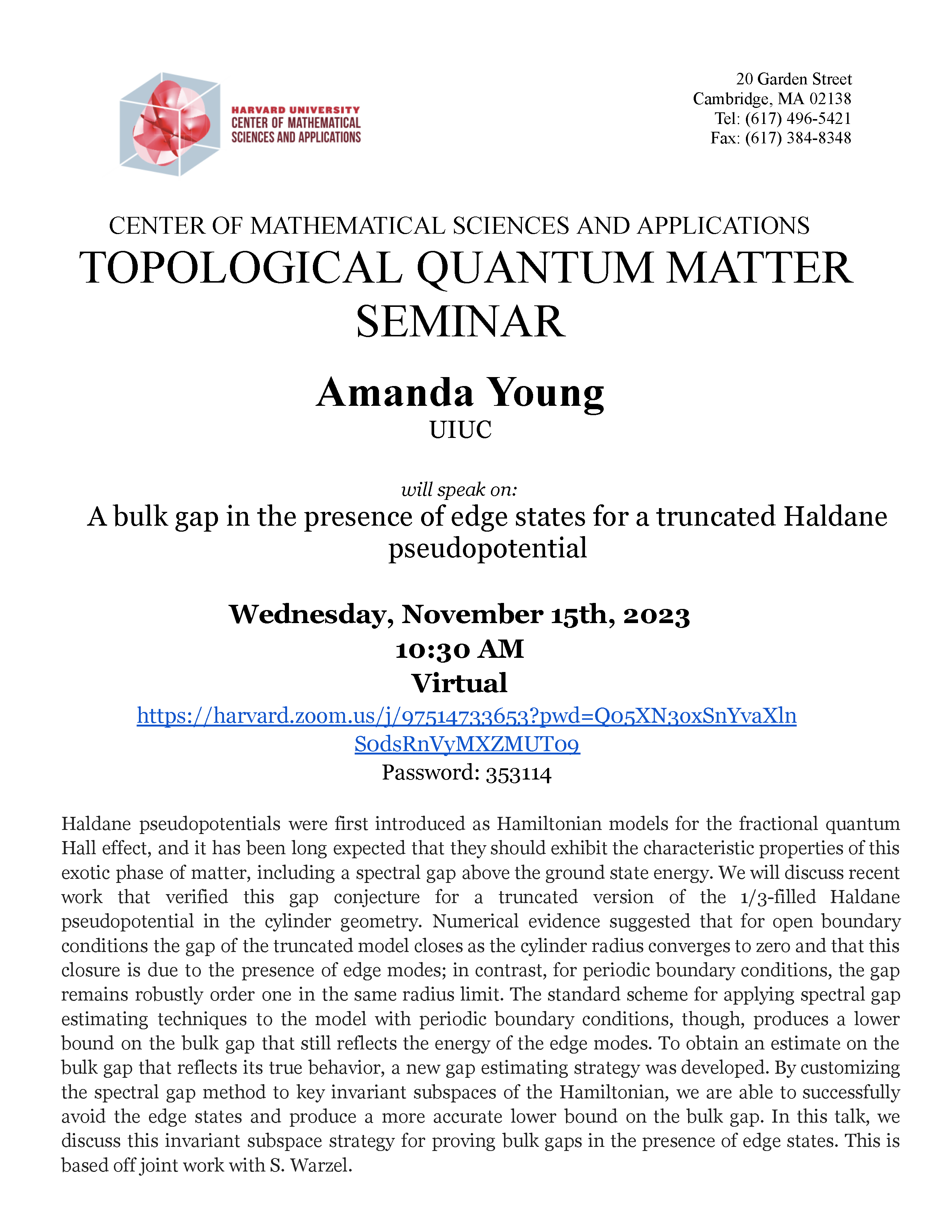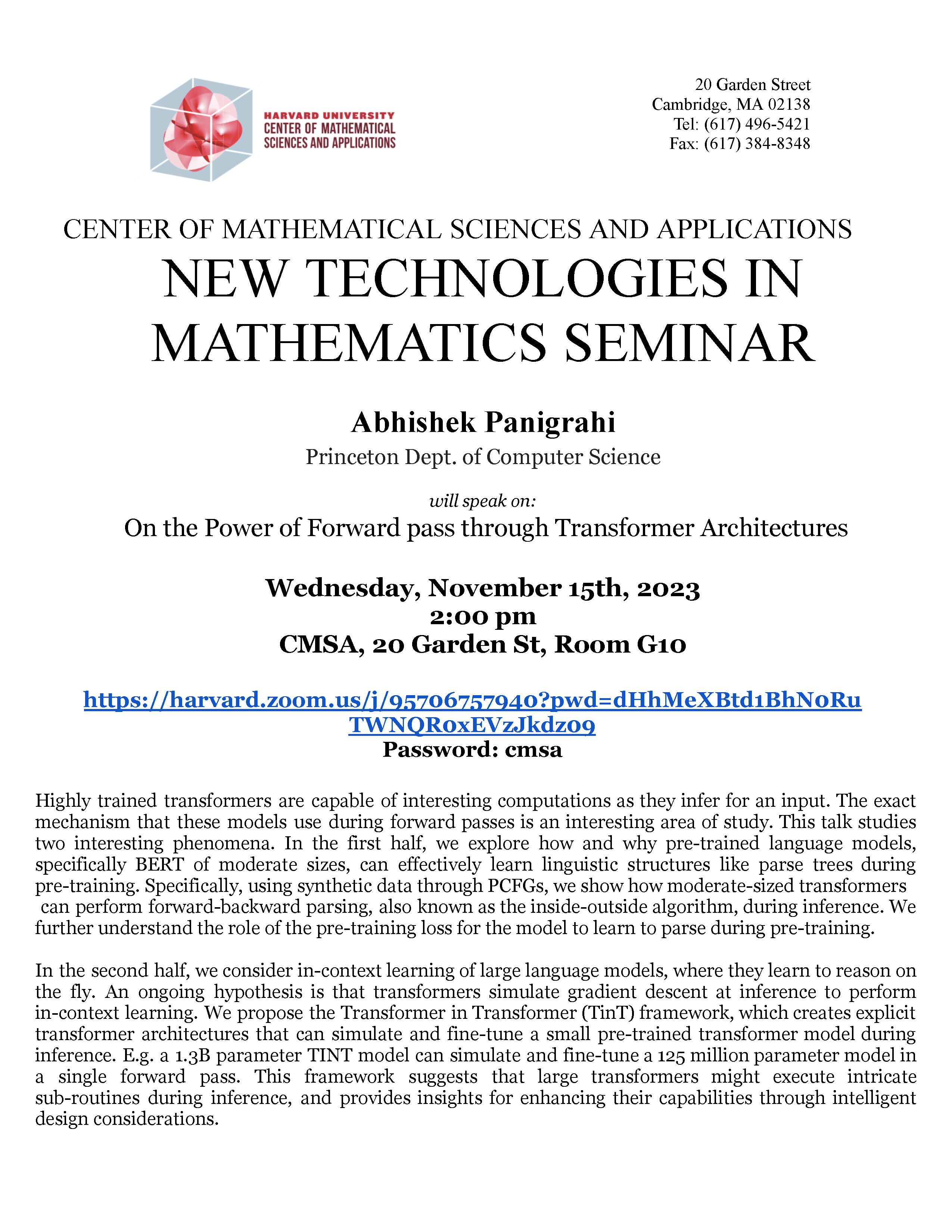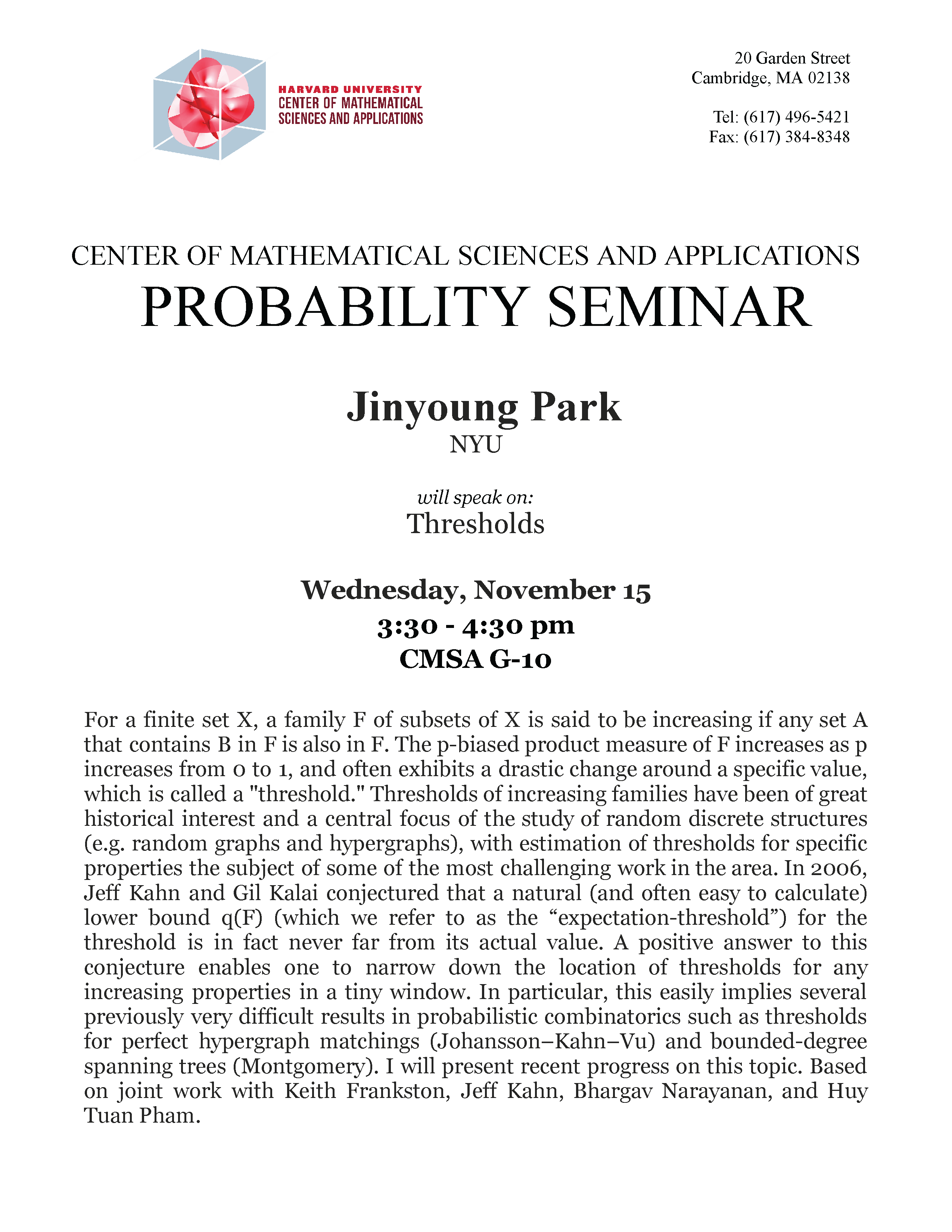CMSA Q and A Seminar 11/7/2023
Common Room, CMSA 20 Garden Street, Cambridge, MA, United StatesCMSA Q and A Seminar Speakers: Michael Hopkins (Harvard Math) and Minhea Popa (Harvard Math) Topics: Mike Hopkins: What are topological modular forms? Mihnea Popa: What is the abundance conjecture and why should it to be true?

